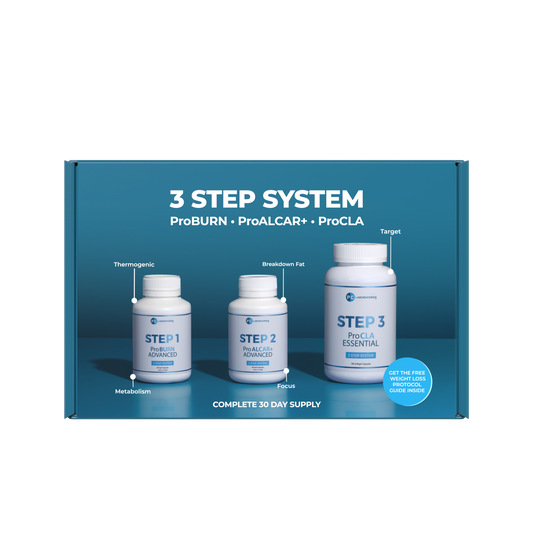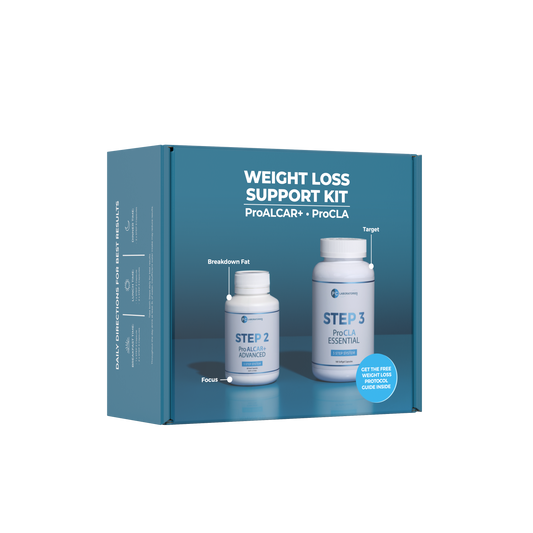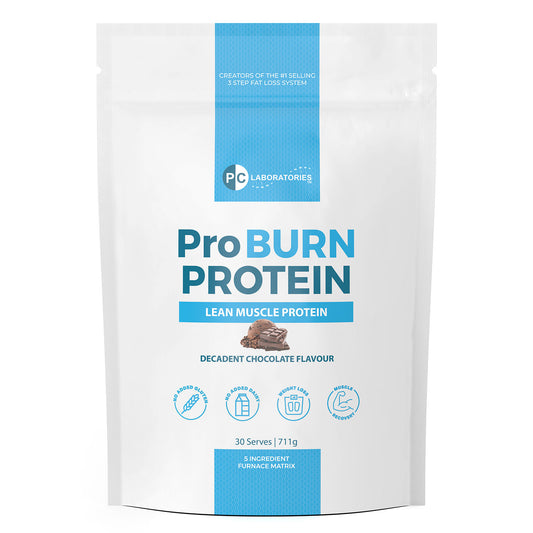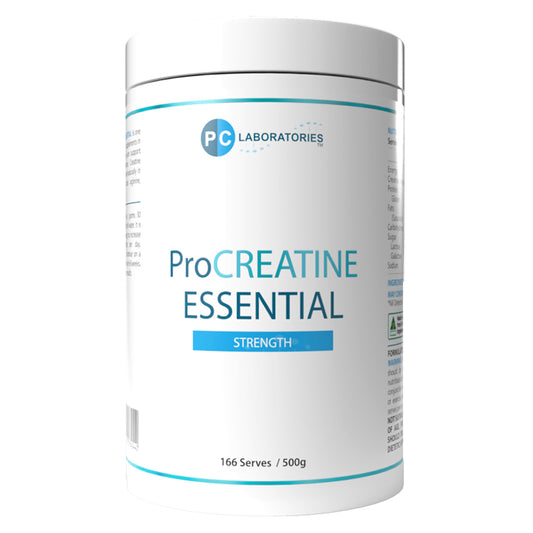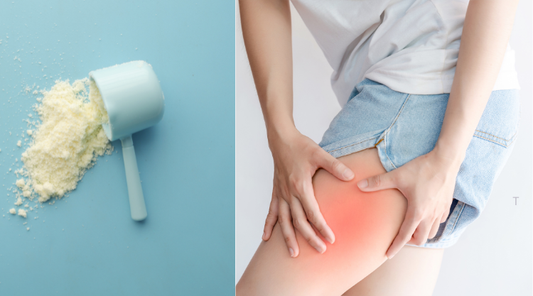Repetitive Strain Injuries (RSIs), also known as overuse injuries, occur when repetitive movements or sustained postures cause stress to muscles, tendons, and nerves. It often gets better by its own, or with plenty of rest and recuperation. But there is a percentage of people who struggle with RSI aggravations, pain and inflammation.
Whether you're an office worker, athlete, or manual labourer, understanding the causes and the impact of RSIs is crucial. We have created a comprehensive guide to RSI, with the best prevention methods and natural management strategies to support a current injury.
RSIs are a growing concern in today's world, affecting individuals across various professions and lifestyles. Common examples include carpal tunnel syndrome, tendinitis, and tennis elbow. These injuries often result from activities like typing, assembly line work, or repetitive athletic motions. Constantly repeating these motions puts strain on the shoulder, elbow, forearm, wrist or hand.
Why Are RSIs on the Rise?
We are working harder and longer hours. If you’re an athlete, pushing your body is part of getting to the next level. But injuries can be the biggest hindrance, especially when they become chronic. Several factors contribute to the increasing prevalence of RSIs:
- Technological Advancements: Prolonged use of computers, smartphones, and other devices leads to repetitive motions, especially in the wrists and fingers. Typing at a computer all day, or walking around staring down at your phone? Yep, that can be an issue.
- Sedentary Lifestyles: Extended periods of sitting and poor posture can strain muscles and joints. When sitting, the core muscles and glutes are inactive, and the hips can be in the wrong position.
- High-Intensity Workouts or Jobs: Athletes pushing their bodies can develop overuse injuries from constantly training. This can happen with or without adequate recovery.
- Ageing Population: Older adults may experience decreased muscle elasticity and joint lubrication, making them more susceptible. The tendency to lead a more sedentary lifestyle and put everything down to just ageing can worsen symptoms.
The Biological Mechanism Behind RSIs
On a cellular level, repetitive movements can lead to microtears in muscle fibres and tendons. Over time, if these tears don't heal properly, they can result in inflammation and pain. Gradually, mobility is reduced or impaired, and function decreases.
The body's natural repair processes may become overwhelmed, leading to chronic conditions. Many factors affect our body’s ability to heal an injury effectively, including genetics, nutrition, lifestyle factors and environmental exposure.
Performance and Well-being Impact
1. Athletic Performance
RSIs can significantly hinder an athlete's performance. Pain and limited mobility can reduce strength, endurance, and coordination, making it challenging to compete at peak levels. This can even end an athlete’s career, as even surgery does not fix the problem.
2. Workplace Productivity
For office workers and manual labourers, RSIs can lead to time off from work, decreased productivity, and long-term disability. Once routine tasks become painful, this affects job performance and satisfaction. Many modern workplaces are starting to offer services to manage physical strain, including on-site gyms, massage and improved break frequency.
3. Mental Health
Chronic pain from RSIs is linked to increased rates of anxiety, depression, and stress. The persistent discomfort can take a toll on mental well-being, leading to a cycle of pain and emotional distress. The fact that chronic pain and a lack of mobility can prevent us from doing the work or activity that we enjoy is significant. Seek help from a mental health professional sooner rather than later if this is you.
Conventional Treatments for RSIs
RSI are not a new kid on the block, but they have shown to be a complex condition to manage. Traditional approaches to managing RSIs include:
- Medication: Nonsteroidal anti-inflammatory drugs (NSAIDs) can alleviate pain but may have side effects with prolonged use. They can help to reduce inflammation and block pain pathways, yet they are not a long-term solution. NSAIDs have consequences for the liver, which should be monitored with chronic use.
- Surgery: In severe cases, surgical intervention may be necessary to repair damaged tissues. This is generally the last resort, yet sometimes necessary to get your freedom back.
- Physiotherapy: Targeted exercises and manual therapies can help restore function and alleviate pain.
While effective, these treatments often focus on symptom management rather than addressing underlying causes. A multifaceted approach can often work best, with multiple support practitioners and your natural management strategy.
Natural Supplements for RSI Management
Incorporating certain supplements into your regimen can support the body's healing processes and reduce inflammation. They are not designed to replace a nutritious diet or eliminate bad lifestyle habits. They support the body to heal and reduce inflammation naturally. Our supplements stack for RSI must have:
1. Collagen
Collagen is a primary component of connective tissues. Supplementation can enhance tendon and ligament strength, promoting recovery from RSIs. Try NoWay by ATP Science for a clean source of bovine collagen.
2. Magnesium
Magnesium plays a role in muscle function and nerve transmission. Adequate levels can help prevent muscle cramps and spasms associated with RSIs. Magnesium Advanced Tablets by Fusion Health are an easy bedtime addition to your routine.
3. Curcumin
The active compound in turmeric, curcumin, has potent anti-inflammatory properties. Studies suggest it can reduce pain and improve function in individuals with musculoskeletal disorders. Bio Curcumin 5400 by Herbs of Gold is a bioavailable curcumin capsule.
4. Boswellia
Boswellia serrata, also known as frankincense, has been shown to reduce inflammation and pain in joints, making it beneficial for RSI sufferers.
5. Glycine
Glycine, an amino acid, supports collagen synthesis and has anti-inflammatory effects. It aids in tissue repair and reduces RSI symptoms. Glycine is involved in calming the nervous system and liver health, so it’s a supplement that covers many bases. We recommend 100% Glycine Powder by Switch Nutrition.
Nutrition for Healthy Connective Tissue
For those who are struggling with Repetitive Strain Injuries (RSI), a diet rich in anti-inflammatory foods and adequate hydration is crucial. Focus on lean protein sources, healthy carbohydrates, and essential nutrients to support healing and manage pain. Try to include these daily to support connective tissue health:
> Omega-3 Fatty Acids: Found in fatty fish, flaxseeds, and walnuts, these fats reduce inflammation.
> Vitamin C: Essential for collagen production, sources include citrus fruits, strawberries, and bell peppers.
> Flavonoids: Present in berries, onions, and tea, they offer antioxidant and anti-inflammatory benefits.
> Gelatin-rich Foods: Bone broth and other gelatin-rich foods provide amino acids that support joint health. Add a Tbsp of bone broth to hot water first thing in the morning for a nutrition boost first thing.
Lifestyle Tips for Preventing RSIs
It’s important to think of ways to better manage RSI daily, as it can severely affect our quality of life. Start a habit tracker to remember when certain tasks should be carried out. These are some of our non-negotiables to reduce the risk of developing RSIs or reduce their severity:
- Ergonomic Workspaces: Ensure your workstation promotes good posture and reduces strain. Alternate between sitting well, standing and perhaps even invest in a walking pad for your desk.
- Regular Breaks: Incorporate short breaks to stretch and move, especially during repetitive tasks.
- Strengthening Exercises: Engage in exercises that strengthen muscles and improve flexibility.
- Adequate Hydration: Staying hydrated supports joint lubrication and muscle function. This means drink your H2O and your minerals!
Prevention Better Than Cure
Preventing RSIs is crucial to avoid long-term damage such as chronic pain, joint degeneration, and decreased mobility. It can be almost too easy to put off an injury assessment or treatment, but that is precisely why some injuries become chronic. Early intervention and lifestyle modifications can ensure better outcomes and maintain overall well-being.
The Last Word
RSIs are a significant concern in today's society, as they can hit us mentally and physically. But with a proactive approach, they can be managed and prevented. By understanding the causes, impacts, and natural management strategies, individuals can take steps to protect their bodies and maintain optimal health. Freedom from injuries is often a lot closer than you think.
References
Cleveland Clinic. (2021). Repetitive strain injury (RSI): Causes, symptoms & treatment. Retrieved from https://my.clevelandclinic.org/health/diseases/17424-repetitive-strain-injury
Frontiers in Sports and Active Living. (2025). Ten days of supplementation with a standardised Boswellia serrata extract improves muscle and joint soreness. Retrieved from https://www.frontiersin.org/articles/10.3389/fspor.2025.1488821/full
Journal of Clinical Nutrition. (2023). Collagen peptide supplementation in combination with resistance training improves body composition and increases muscle strength in elderly sarcopenic men: A randomised controlled trial. Retrieved from https://www.cambridge.org/core/journals/british-journal-of-nutrition/article/collagen-peptide-supplementation-in-combination-with-resistance-training-improves-body-composition-and-increases-muscle-strength-in-elderly-sarcopenic-men-a-randomised-controlled-trial/9426E375742D094F91029FD0364815C4
Journal of Clinical Medicine. (2023). The effect of glycine administration on the characteristics of eleven physiological systems in adult humans. Retrieved from https://link.springer.com/article/10.1007/s11357-023-00970-8
ScienceDirect. (2023). Antioxidant and anti-inflammatory effects of curcumin/turmeric. Retrieved from https://www.sciencedirect.com/science/article/pi


